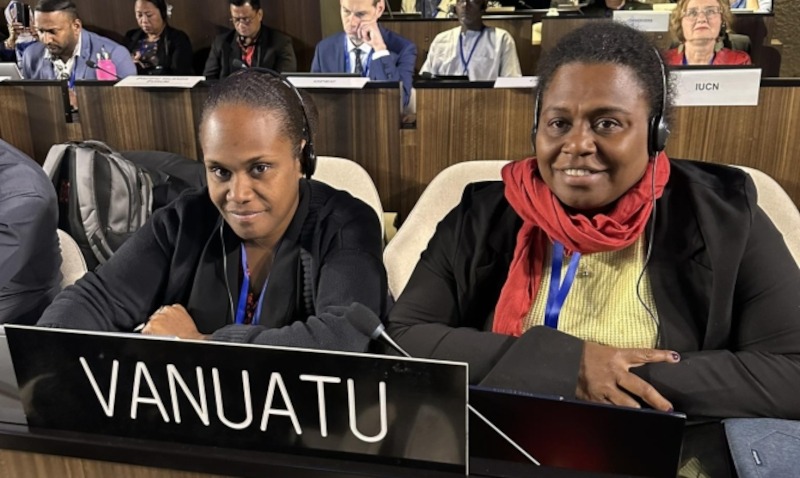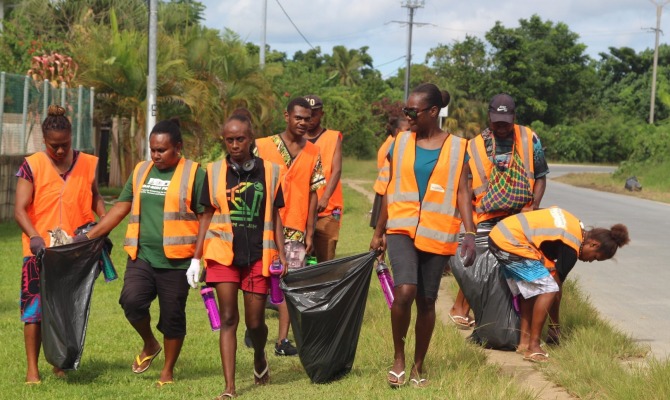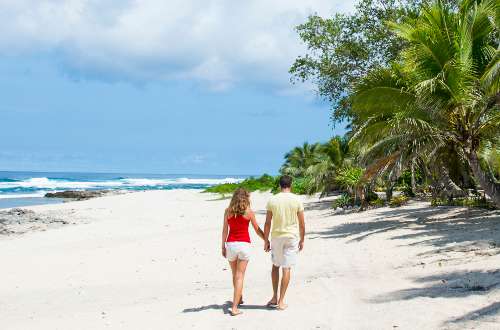
Richard Butler | Exclusive Report by NewsWires EIN | JUNE 1st, 2023
Global leadership in the battle against single-use plastic was shown by Vanuatu when the Pacific Island nation became the first in the world to ban plastic straws in 2018. Now five years on, Vanuatu has joined the call for a strong and ambitious legally binding instrument to tackle the plastic pollution crisis.
This week in Paris the Second Intergovernmental Negotiating Committee to develop an internationally legally binding instrument on plastic pollution including in the marine environment is underway. 193 Governments are negotiating a plastics treaty to help address a growing problem.
According to the United Nations Environment Programme, about 400 million tonnes of plastic is produced each year since the 1970’s the rate of plastic production has grown faster than that of any other material. If this trend continues, global production of primary plastic will reach 1,100 million tonnes by 2050.
If business as usual continues, the amount of plastic in our ocean will outweigh fish, by 2050.
“Vanuatu faces many challenges – we have a limited land mass, we are vulnerable to both the impacts of climate change and natural disasters – dealing with plastic waste is another challenge that we struggle to address,” said Ms Touasi Tiwok, Director of Environment of Vanuatu.
“We have done as much as we can do, but we don’t have the capacity to do more – this problem continues to grow, and we need global cooperation to help us all.”

Here in Paris, France, the five-day negotiations to progress the content of a legally binding instrument has been slow to start. The first two and a half days of the negotiations for a plastic treaty were focused on procedural processes. The International Negotiating Committee of 193 governments have been mandated to develop a plastics treaty through five INCs to be completed by the end of 2024.
All of the Pacific Islands engaging in the negotiations in Paris, France have been eager to begin discussions for this plastic treaty from the day one. With the first two and a half days spent negotiating the rules and procedures, this leaves the remaining two and a half days to negotiate substantive items within the treaty.
“When it comes to the crunch, we need to see more responsibility taken by all countries, we need everyone to play a role in taking this forward and not just wait to bracket text – we need a unified global stance to put a plastics treaty in place,” said Ms Tiwok.
“Plastic is impacting our environment and our health. It is everywhere and it needs everyone, especially those in these negotiating rooms, to take responsibility, step up and let’s make this happen at the global level.”
In the five years since Vanuatu made global headlines as the first in the world to ban a single-use plastic product, many lessons have been learnt. The impact of this, and subsequent bans on other single-use plastic items resulted in visible improvement in plastic litter. And then COVID-19 struck.
“With COVID came a lot of challenges and we realized that business as usual in making this successful was not going to work. We realigned activities and began to apply a collective approach – we learnt that while the government put the legislation in place, we needed everyone to play their part to make it a reality,” said Ms Tiwok.
“We needed our private sector, government departments, even individuals – all of us to fully understand why the Vanuatu government did this and the positive impact it will have. At the end of the day, our collective approach will make a difference for our future.”
And as for the remaining two and a half days of negotiations under the INC2?
“I am hopeful we will get this done together; you can hear it in the plenary room – a lot of countries want this legally binding instrument. Even with the delays in negotiations we have had, there is hope in the room.”
“We will have a plastics treaty.”
The second Intergovernmental negotiating committee to develop an international legally binding instrument on plastic pollution, including in the marine environment is taking place in Paris France from 29 May to 2 June 2023. The Pacific Islands are represented by the Cook Islands, Federated States of Micronesia, Fiji, Kiribati, Nauru, Niue, Palau, Papua New Guinea, Samoa, Solomon Islands, Tuvalu and Vanuatu through the support of the Government of Australia and the United Nations.
They are supported by the Secretariat of the Pacific Regional Environment Programme (SPREP), working with partners the Pacific Islands Forum Secretariat, Office of the Pacific Ocean Commissioner, Environmental Investigation Agency, Centre for International Environmental Law, University of Wollongong, WWF and Massey University.





